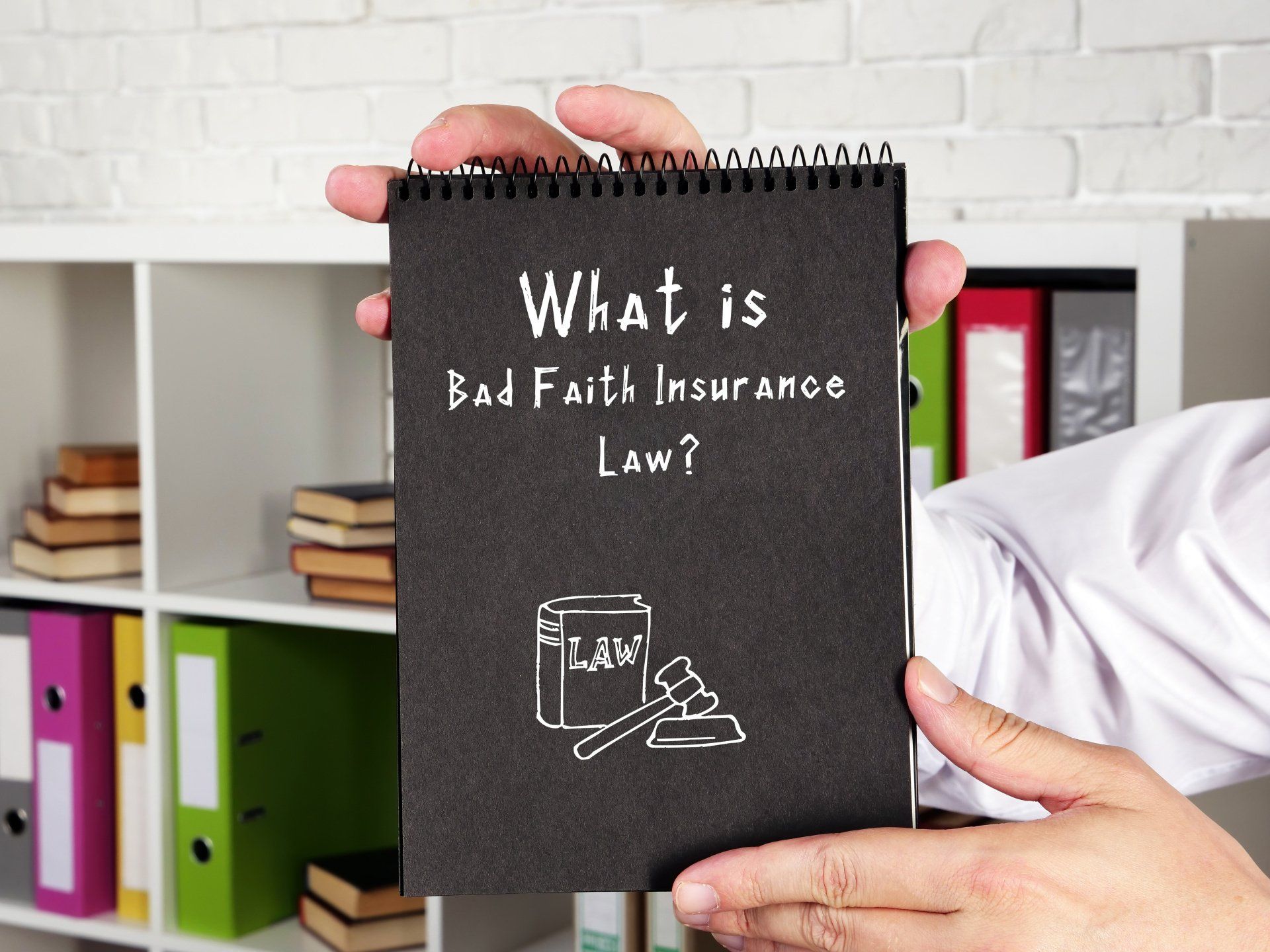Blog

Insurance companies frequently rely on local law firms with experienced insurance litigators when they are faced with bad faith lawsuits from policyholders. Working with an attorney familiar with the local judges, statutes and precedents in a jurisdiction is often vital to the outcome of a bad faith defense.
Edwards & Hawkins is one of the Atlanta law firms that has experience representing insurers in bad faith actions, as well as policyholders who believe they were the victim of bad faith.
What Are Bad Faith Actions?
There’s a “covenant of good faith” between insurance companies and their policyholders. The insured can pursue bad faith actions if they believe the insurance company has breached the covenant of good faith.
Typical bad faith actions include things like:
- Improper claim denials
- Excessively slow claim investigations
- Less-than-reasonable compensation
- Excessive claim processing delays
- Negligent actions by insurance agents
There’s a difference between a legitimate mistake or justifiable delays and bad faith actions. There could be extenuating circumstances or specific facts of a claim that caused delays or underpayments. It’s not always easy to determine whether an outcome was the result of bad faith without investigation.
If you suspect your insurance company is acting in bad faith you may want to speak with a civil litigation attorney with experience in bad faith actions. They can help you understand whether:
- What’s happening to you is likely to be considered bad faith
- Whether it’s worth your time and effort to pursue a case
Bad faith cases are complicated and aren’t guaranteed, especially when the insurance company has a good defense. However, it is important for insurance companies to be held accountable when they do breach the covenant of good faith.
Some Possible Bad Faith Defense Strategies
Nearly every potential bad faith accusation has some type of potential defense strategy.
A policyholder may file a claim after the statute of limitations (deadline) has already passed. Their attorney may even argue that a different statute of limitations should apply to their claim based on the circumstances of the situation.
The statute of limitations in Georgia is four years for property damage claims and two years for injury claims, but there are scenarios in which those deadlines could be extended. Whether or not those special circumstances are relevant to the case may be integral to the bad faith action’s outcome.
The insurance company can also argue the policyholder was in breach of contract. Insurance policies are complex, and there may be many ways in which an insured could unknowingly or knowingly violate some part of their contract. Whether or not the policyholder’s noncompliance will be an effective defense for a bad faith action depends on the situation.
Bad faith actions can arise when an insurance company fails to settle a case against their insured and goes on to lose in court, leaving their policyholder with a much larger verdict against them. If the plaintiff had a weak case but somehow still managed to win, the insurance company can argue that the outcome was unlikely and unforeseen, therefore they acted in good faith at the time by not settling.
An insurance company might also attempt the “advice of counsel” defense. In overly simplified terms, that means the insurance company followed the advice of their legal counsel, which they trusted was provided in good faith. The defense is intended to show the insurer never intended to act in bad faith. How effective that defense is depends on the jurisdiction. Using a counsel defense can be risky because it results in the loss of attorney-client privilege between the insurer and their counsel in the case.
Failure to mitigate is another potential bad faith defense. Property insurance policies often stipulate that the insured needs to take actions to mitigate damage.
If a policyholder has a leaking roof, they should notify the insurance company and then do their best to stop the leak to prevent further damage. If they knew the leak was happening, took no mitigating actions and the roof collapses, the insurance company can argue the policy holder failed to mitigate that risk.
The difficult part of failure to mitigate defenses is proving the policyholder knew or reasonably should have known about the damage and could have done something to prevent it. The insured could just argue that they never noticed the leak and should not have been reasonably expected to have noticed the leak.
Defending Against Bad Faith Claims in Atlanta
Donald Edwards and Cameron Hawkins are intimately familiar with the complexities of tort law as it pertains to liability litigation and bad faith actions in Georgia. They are available to assist both insurance companies and insureds who require representation in bad faith actions.
Call (404) 526-8866 to request a consultation.











